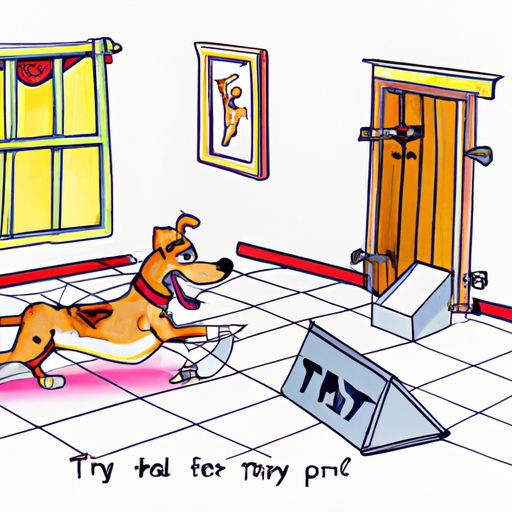Introduction
Imagine the warmth of your home, the safety you feel within its walls. Now, imagine sharing this treasured space with unwanted guests: mice. As a loving dog owner, your top priority is to keep your pets safe while dealing with the rodent problem. This can be a challenge, but with patience, diligence, and a little bit of knowledge, it can be done effectively and humanely.
1. Understanding the Problem
Before we dive into solutions, let’s first understand the problem. Why are these rodents even in your home? Mice are opportunists. They seek shelter, food, and water. If your home provides these, it becomes an attractive dwelling for them.
| Factors Attracting Mice | How it Affects Your Dogs |
|---|---|
| Food waste | Can cause food aggression or obesity |
| Cluttered spaces | Can hide hazards like mouse droppings |
| Leaking pipes | Can cause health issues due to damp environment |
2. Precautionary Measures
Prevention is always better than cure. Here are some steps you can follow:
-
Keep your home clean: Mice are attracted to food scraps. Ensure that your kitchen and dining areas are clean. Wipe down surfaces, cover your bins, and don’t leave food out.
-
Declutter your home: Mice use clutter as hiding spots. By decluttering, you’re reducing their potential habitats.
-
Seal off potential entry points: Mice can squeeze through tiny openings. Inspect your home for gaps or cracks and seal them off.
3. Non-Toxic Mouse Traps
Mouse traps are an effective method to control a mouse infestation, but you need to be mindful of your dogs. Traditional snap traps or poison baits can pose a risk to your curious four-legged friends.
-
Live Capture Traps: These traps are designed to catch mice without killing them. They are safe around dogs as they don’t use poison or harmful substances.
-
Electronic Mouse Traps: These traps use a high-voltage shock to instantly kill mice. They are enclosed units, which makes them safe around dogs.
4. Seeking Professional Help
Sometimes, the infestation might be too big for you to handle. In such cases, it’s best to call a professional pest control service. They have the tools, knowledge, and resources to deal with the problem efficiently. Ensure that their methods are safe for your dogs.
5. Educating Your Dogs
Dogs are natural hunters and might be inclined to chase and catch the mice. While this might seem like a good natural solution, it can be harmful to your dog. Mice carry diseases that your dog can contract. Therefore, it’s important to discourage your dog from chasing or eating mice.
Frequently Asked Questions
1. Can mice harm my dogs?
Yes, mice can carry diseases that can be contracted by your dogs if they come into contact with them.
2. Are mouse repellents safe for dogs?
Some mouse repellents can be harmful to dogs. Always read the label and consult with your vet before using them.
3. Can my dog eat a dead mouse?
No, eating a dead mouse can cause your dogs to contract diseases or ingest poison if the mouse was killed using poison bait.
4. How will I know if I have a mouse infestation?
Signs of a mouse infestation include mouse droppings, gnaw marks, noises in the walls or ceilings, and finding food packages torn or chewed.
5. Can my dog help get rid of mice?
While dogs can help deter mice, it’s not safe for them to catch or eat them. It’s best to use non-toxic methods or professional help to get rid of mice.
Remember, your primary aim is to ensure the safety of your pets while dealing with the mice problem. It might require a bit of patience and effort, but a mouse-free, dog-friendly home is absolutely achievable.



